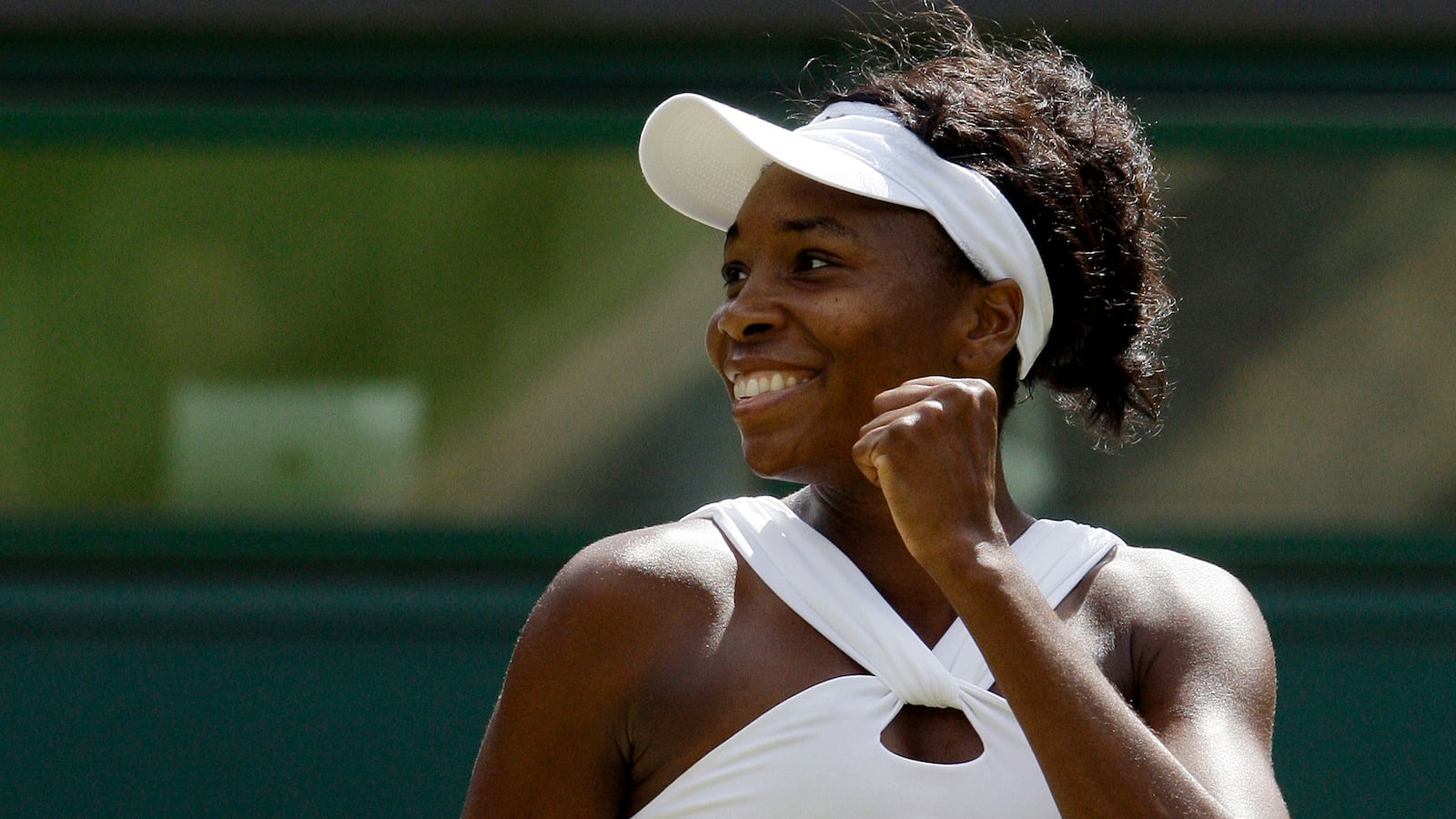Venus Williams may be absent from Wimbledon this year, but her influence on the tournament remains—and as more than just a bellwether for sister Serena’s success.

The new ESPN film Venus Vs., which airs July 2 on the sports network, is likely to cement the tennis superstar’s legacy as a trailblazer and a heroine for women’s rights. Venus Vs. documents the long battle for equal wages among the sexes in tennis that began with Billie Jean King and was later championed by Venus.
Director Ava DuVernay suggested the Venus-themed documentary to ESPN last year after researching Williams’s relentless efforts to attain equal pay at Wimbledon. “I’d heard about it but didn’t know all of the details,’’ said DuVernay. “It’s really a fascinating story.’’
Williams first advocated for equal pay in 2005, when men at Wimbledon were still earning more money and officials saw no reason for a change. She ultimately won the fight in 2007 when Wimbledon announced it would pay winners equally. “I wasn’t planning on being that person,’’ said Williams during a conference call with the media last Friday. “I was in the right place at the right time.’’
The film showcases Venus and other tennis notables speaking at length about the struggle, as well as various male tennis stars explaining why their longer, best-of-five sets should be compensated at a higher rate. (In 2006, the female champion Amelie Mauresmo earned about $55,000 less than men’s champion Roger Federer.) Women’s sets usually are best of three. Many women tennis stars counter that women’s tennis is the larger draw, leveling the playing field.
Well-known tennis personality John McEnroe offers brutal honesty in the film by admitting he was dead-set against equal pay while playing the game. But today, as the father of four daughters, he said he’s “thinking it’s a pretty good idea.”
Unfortunately, despite McEnroe’s evolution, the feud over equal pay continues. Several male players continue to suggest that women don’t deserve to win the same $2.5 million prize at Wimbledon. ATP Player Council members Gilles Simons and Sergiy Stakhovsky were recently both critical of the equal-pay policy. Segments of the European media tend to agree despite the fact that women players have long said they’d readily play five sets.
“The argument is null because we have said we are willing and ready,’’ said Serena Williams. “I think every female athlete is ready to play five sets.’’
But changing to five sets in the women’s draw in most Grand Slams would add more games to an already overcrowded schedule.
At 33 years old, some say the elder Williams has seen her best days on the court. Nagging injuries and a diagnosis of Sjogren’s Syndrome have sidelined the five-time Wimbledon winner for more tournaments than she’d like. Williams said she’s ready for World Team Tennis and the U.S Open next month. But she is looking ahead to her future off-court, as well.
“I definitely expect to be involved in [social issues],’’ said Williams. “I’ll be involved with equality.’’






